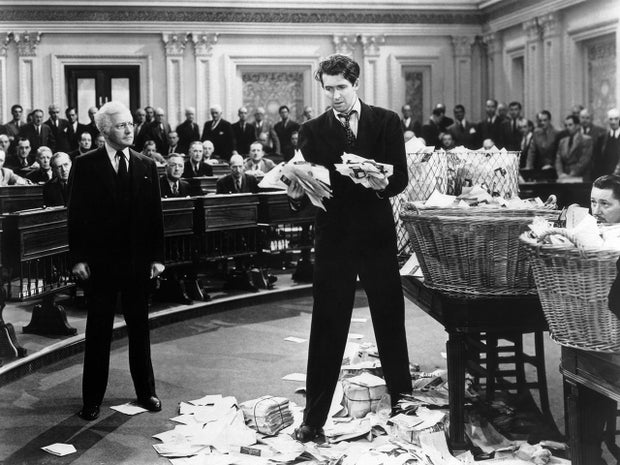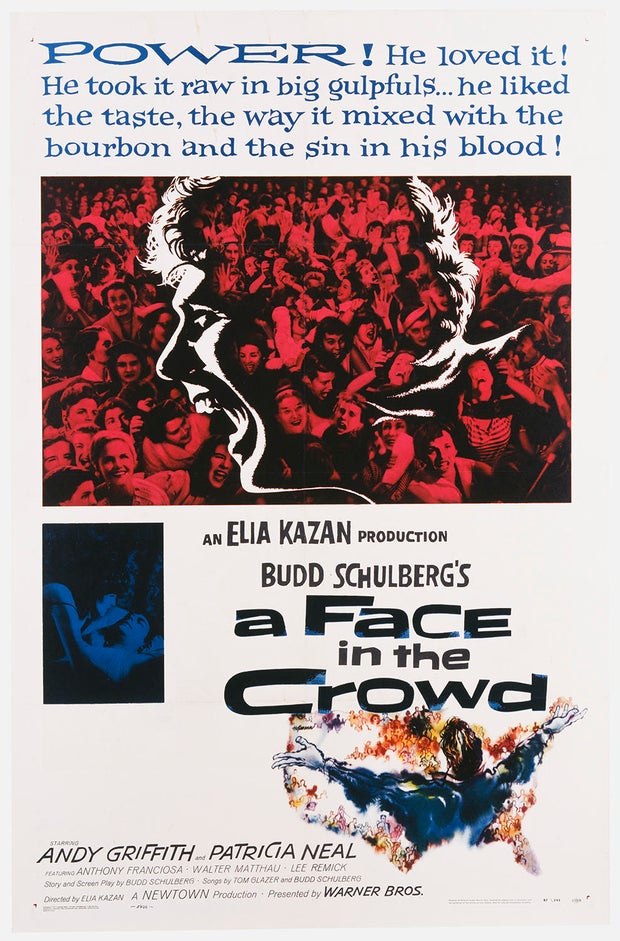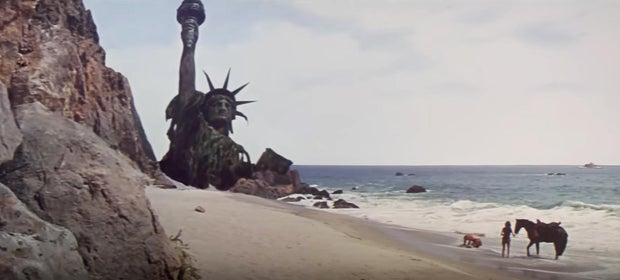Jimmy Stewart in “Mr. Smith Goes to Washington” … Frank Sinatra in “The Manchurian Candidate” … Robert Redford and Dustin Hoffman in “All the President’s Men.” Big political movies with big stars have long been part of the Hollywood playbook.
Herbert Dorfman/Corbis via Getty Images
Playing the chief of staff to President Michael Douglas, Martin Sheen got his first taste of a fictional White House in 1995 in “The American President.” Four years later, Sheen became the small screen’s most famous commander-in-chief, as President Jed Bartlett on “The West Wing.” He described the role as one of the best moments of his life, “as an actor, as an American.”
“The West Wing” premiered 25 years ago this month. But getting it on the air in today’s contentious political climate would be tricky. Today, with where we are in our, you know, divided politics, sure, it would be very difficult,” Sheen said. “You have to tell the truth. And nowadays there’s all these questions about, ‘Whose truth?'”
Despite the intense interest in this upcoming election, Hollywood appears to have largely stopped making political movies. “If they’re making them, they’re not showing them to me,” said Michael Lynton, a former studio executive (he ran Sony Pictures Entertainment for 13 years). Show business, he says, is a bottom-line business that today is more risk-averse than ever, relying on big-budget global franchises to drive profits.
Running a studio, Lynton said, makes him answerable to his bosses and his shareholders: “Very much so. And, you know, they want a return, understandably. And that’s a huge piece of the equation. They want a financial return.”
What they don’t want is controversy. Consider “The Apprentice,” the new film tracking Donald Trump’s rise to power in the 1970s and ’80s. It took months for producers to find a distributor. No one wanted to touch the film, especially after the Trump campaign threatened to sue.
Watch a clip from “The Apprentice,” featuring Jeremy Strong as Roy Cohn and Sebastian Stan as his protégé Donald Trump:
Producers and studios have long had an obsession with the bottom line (plus a healthy fear of political controversy). But that didn’t stop them from making films with bold political themes, like 1957’s “A Face in the Crowd,” starring Andy Griffith as a folksy entertainer who manipulates his way to the top.
“I think ‘A Face in the Crowd’ is an excellent film, and terribly relevant for our own times,” said Columbia University film professor Annette Insdorf. “We actually get to see the rise of someone who assumes power, and it is not because he is particularly gifted, idealistic, or has a vision; it’s because he’s plucked from a certain kind of obscurity and managed, until he ends up managing the others.”
Movie Poster Image Art/Getty Images
Mankiewicz asked, “So, does that leave us in a bad place, where we are absent Hollywood churning out [political] films?”
“The relationship between Hollywood and Washington is not a static one; it swings, back and forth,” Insdorf said.
Michael Schulman, who writes about culture and the arts for The New Yorker, said, “I think most of the time, politics comes through in movies through metaphor. Movies refract more than they reflect.”
He says robust political messaging still thrives in the subtext of great movies. “One of my favorite movies from the ’50s is ‘High Noon,’ a western about a sheriff in a small town who has to face his enemy alone because all of his allies abandon him. This is a movie about the blacklist, about the cowardice of people in Hollywood during the Red Scare.
“‘Planet of the Apes is,’ of course, about a planet of apes. But it’s really – surprise! – about how humanity is destroying itself and the threat of nuclear annihilation,” he said.
20th Century Fox
Many of the biggest hits of the last five years, says Schulman, convey deeply political ideas: “What’s more political than ‘Joker,’ which kind of captured the white male disaffection and isolation of the Trump era? What’s more political than ‘Barbie,’ which, you know, is about feminism, and how difficult it is to be a woman?”
“Movies are always, even subconsciously, capturing something about the politics of their age,” said Schulman
Michael Lynton, the former studio boss, misses those daring films of the past (like the ’70s thrillers “The Conversation,” “The Parallax View,” and “Three Days of the Condor”), though he understands the current challenges of making and marketing politically-charged movies. “I ran a business, and I understand why business would be fearful of it,” he said. And I’m not advocating, by the way, that businesses should change their practice. I’m just observing what’s going on.
“On the other hand, it’s just a shame, I think it’s shame that right now we’re not hearing from some of the people we really should be hearing from,” Lynton said.
Martin Sheen agrees. He wants to hear from those filmmakers, too: “I think we’re entitled to different opinions, and to the courage of writers, producers, directors, actors, all the creative people to say that they declare or that they reflect the truth, the whole truth and nothing but the truth in what they’re doing.”
Mankiewicz asked, “So, you think maybe this is the exact time to start making a political story?”
“This might be the most critical time,” Sheen replied.
For more info:
Story produced by Gabriel Falcon. Editor: Joseph Frandino.
See also:




